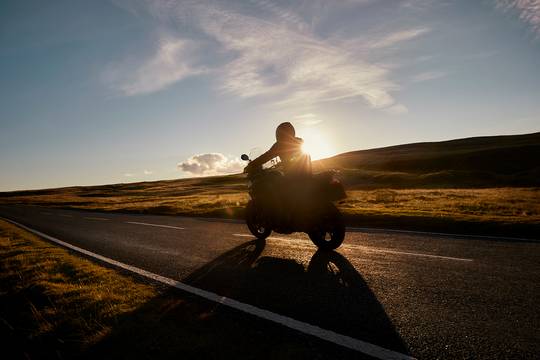Powered Two-Wheeler Registrations and Analysis 2021

Powered Two-Wheeler Registrations and Analysis 2021
2021 PTW registration statistics released today by MCIA depict positive movement in the way in which consumers continue to consider their transport choices for both business and pleasure, with a staggering 9.3% increase in registrations verses 2020.
With SMMT reporting 1% growth across the car sector, it’s clear the benefits of Powered Two Wheelers (PTW’s) are challenging traditional transport solutions by offering an affordable, economical, and viable alternative to the constraints of congestion, access to towns and cities, and the rising costs of fuel and parking.
Over 114,300 units were registered in 2021, the highest since 2016, with scooters (all capacities) accounting for 28% of the market. Following on from the removal of lockdown restrictions, the market remained consistently strong right through to December.
As Clean Air Zones emerge across many Cities, PTW’s continue to offer commuters a cost saving alternative to hefty congestion and ULEZ charges. PTW’s offer a time-busting solution to congestion and of course provide an isolated transport solution in what remains a pandemic mindset for many. In addition to commuting, the last mile delivery sector continues to invest in Powered Two Wheelers with many fleets moving to fully electric during 2021, this trend is expected to gather even more pace during 2022.
MCIA continue their work in influencing Government, where Industry is currently working with senior officials on the sector Decarbonisation Action Plan. With this in mind, it is encouraging to see electric PTW registrations up by 146% compared to 2020, where E-PTW’s now represent 5% of the total market. This sharp rise in registrations of fully electric PTW’s continue to support the direction of the Plan and challenge preconceptions of zero and low emission PTWs, as they prove their value offering a convenient and viable alternative to higher polluting vehicles.
Away from commuting and everyday transport, PTWs continue to offer health benefits as a leisure past-time. The market has seen significant growth across all sectors, in particular Adventure and Naked styled machines. Motorcycling continues to be an amazing antidote to the stresses and strains of modern life, where mental health and personal well-being are prioritised on the open roads and amongst the like-minded motorcycling community.
MCIA CEO, Tony Campbell, said: “A 9.3% rise in registrations further underlines the dedication and passion of our industry to cumulatively promote the many benefits of PTWs as a commuting, business tool and leisure activity. We will continue to work with and challenge Government to enable our members and their customers to maintain this upward trajectory as we head into 2022 and beyond”.
More details about 2021 PTW registrations can be found here.
Please credit MCIA when quoting this information.
- ENDS -
Notes for Editors:
The MCIA is the body that represents the UK Powered Light Vehicle (PLV) industry. PLVs can be defined as lightweight scooters, motorcycles, tricycles and quadricycles, typically with zero or low-emission power.
Also known as L-Category vehicles, they are an answer to the traffic congestion and air quality challenges created by personal and goods transportation.
The Route to Tomorrow’s Journeys is the MCIA policy document highlighting the vital role that PLVs can play in future transport.
For more information about the work of the MCIA and Powered Light Vehicles, or to interview MCIA CEO, Tony Campbell, please contact Gina Evans at g.evans@mcia.co.uk.
